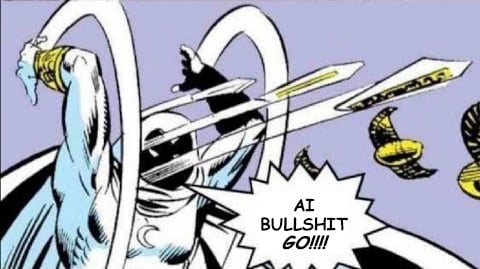this post was submitted on 06 Aug 2023
1767 points (98.5% liked)
Programmer Humor
33546 readers
291 users here now
Post funny things about programming here! (Or just rant about your favourite programming language.)
Rules:
- Posts must be relevant to programming, programmers, or computer science.
- No NSFW content.
- Jokes must be in good taste. No hate speech, bigotry, etc.
founded 5 years ago
MODERATORS
you are viewing a single comment's thread
view the rest of the comments
view the rest of the comments

Steam cards are a good example. Imagine if stream went bankrupt. Wouldn't be an issue with Blockchain.
It would be an issue if every place that cared about those cards crashed. Let's use a real world example: Decentraland and Vault Hill. Both offer similar services, a "virtual reality metaverse", not unlike VR Chat or Second Life. Both allow you to buy marketplace items in the form of NFTs, which go straight to your wallet.
So far, so good. But, right now, neither has any plans to accept the other's NFTs. I can prove I own something from another game, but the game itself doesn't care. I also can't buy Decentraland stuff with VHC tokens, nor Vault Hill items with MANA, which makes them rather centralized.
As soon as either company crashes and goes bankrupt, everything connected will become useless and lose most or all value. Thus, blockchain wouldn't fix the issue.
However, NFTs that are accepted by both will have higher value.
We are starting seeing this on Roblox and Fortnite where skins can pass through to different games. .
That's exactly what blockchain is fixing. E.g. Your valuable skins don't disappear when the company running the game you play goes bankrupt.
That's the theory. Games companies are at the private blockchain stage but there are some small web3 game developers.